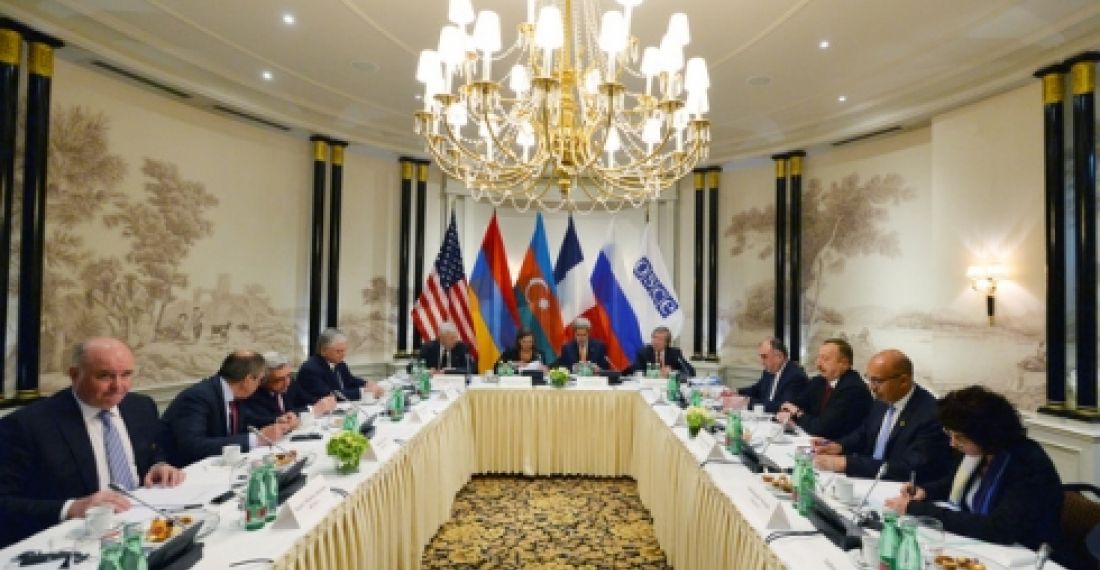Editorial by commonspace.eu
The meeting between the Presidents of Armenia and Azerbaijan, held in Vienna on Monday (16 May) was a positive step forward in the turbulent relations between the two countries, who for decades have now been caught in a conflict between them over Nagorno-Karabakh. The meeting was held in the presence of the US Secretary of State and the Foreign Minister of Russia, as well as representatives of France and the OSCE.
As these things often are it was a well choreographed affair, but the absence of warm hand shakes or cosy tete a tete's between the two Presidents reflected how the atmosphere between them has been poisoned by the recent fighting that saw the fragile cease fire violated in serious incidents which claimed dozens of life.
The Vienna meeting opened the way for diplomacy to resume, and for efforts to be intensified for a resolution of this senseless conflict.
The wording of the statement issued by France, Russia and the United States, as co-Chair of the Minsk process is vague. But there are some tangible points which may offer a basis for future work:
- they agreed to finalize in the shortest possible time an OSCE investigative mechanism to help avoid further incidents
- they agreed to the expansion of the existing Office of the Personal Representative of the OSCE Chairperson in Office
- they agreed to continue the exchange of data on missing persons under the auspices of the International Committee of the Red Cross (ICRC) to which the Presidents had committed during the Paris summit of October 2014.
- they agreed on a next round of talks, to be held in June at a place to be mutually agreed, with an aim to resuming negotiations on a comprehensive settlement.
These four points hardly constitute a dramatic breakthrough, but if an investigative mechanism on incidents on the front line can be agreed this would be an important way of reducing the danger of violence. The expansion of the office of the Personal Representative will also enable this to happen. The handful of staff that currently monitor the cease fire are clearly not enough.
But perhaps the most important decision in Vienna was to agree on the resumption of talks "with an aim to resuming negotiations on a comprehensive settlement". For make no mistake about it, Vienna was not about solving the Karabakh conflict, simply a concerted effort by the international community to stop Armenia and Azerbaijan from sliding into a new war. While this is important the work to resolve the conflict must continue in earnest if future violence is to be avoided.
This editorial was prepared by the editorial team of commonspace.eu







